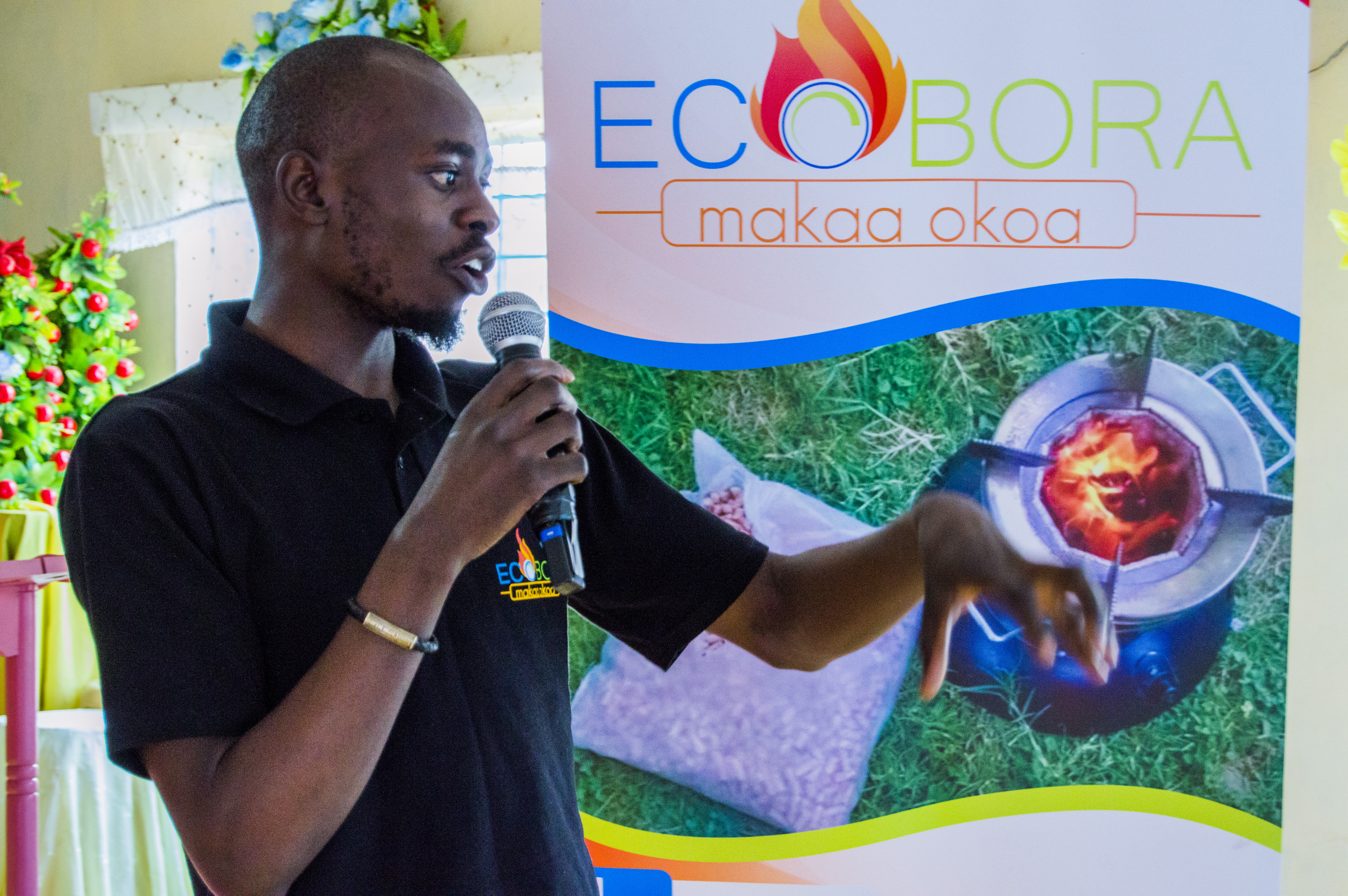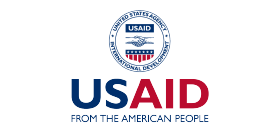Impact Stories & Blogs
Our team share their insights and perspectives on the impact our program is having on youth in East and Central Africa.

By Justine Nyaruri Abuga (Kenya, Cohort 6)
Growing up I saw how my mother struggled to provide for us, and being from a humble background, she would cook using paraffin or firewood, and the smoke had debilitating effects on her health. As I grew older I grappled with the question of how to make it easier for my mother to prepare meals without harming her health. Upon graduating from university I set up the Ecobora Company which focuses on making fuel out of sawdust.
Our solutions at the initial stages of setting up Ecobora were very simple: we would collect sawdust and mix it with clay soil to make fireballs. We would then supply the fireballs to children’s homes in the slums, since we knew they could not afford charcoal.
When I enrolled at the YALI Regional Leadership Center East Africa, I quickly realized I had an amazing opportunity that would help me improve my business skills. Going through the Design Thinking session helped me refine my prototype and conduct a market validation study, improving my business acumen in the process. By the time I graduated, I was ready to rejuvenate Ecobora and take it to the next level. Before I enrolled in the leadership program, Ecobora was like a ship with a hole and steering it was a challenge. After graduation, I had acquired the right skills to not only seal the hole, but also steer Ecobora in the right direction.
Within the first five months of graduating from the Center numerous opportunities came my way. The highlight was winning the CITI-USADF business grant competition worth $10,000 coupled with free business skills development support. This grant has enabled me to acquire a new efficient pelletizer machine and this has in turn has increased production to one ton per hour. We were able to move to a bigger warehouse, an opportunity that has increased our efficiency by 50%. We have increased the number of workers to 12, and have also created an opportunity for youth to work with us as sales agents.
So far, we are working closely with eight women and youth groups who are responsible for sourcing waste sawdust on our behalf. We have created employment for approximately 80 people, both inside and outside the factory. We have 13 people working in the factory full time - 4 machine operators, 2 people in charge of branding, 3 people for marketing, 2 managers, and 2 people stocking sawdust. The rest of the 80 people are from the women and youth groups who supply material to the factory on commission.
Through the CITI-USADF grant, we have expanded our eco-literacy and eco-entrepreneurship program, and have managed to train more than 250 youth and women. We have constructed eight Ecobora kiosks for eight women’s groups, where we stock wood pellets and allow the women to sell vegetables. This has created employment for the women and empowered them to take care of their families.
We are working with youth in Nyamira, a town in the western part of Kenya, supporting them to run tree nurseries. To date, we have created 10 Ecobora tree nurseries, creating employment for approximately 80 young people, some of which are also suppliers for the factory. Our goal is to support youth to own 1,000 nurseries by December 2017. At Ecobora we are using green energy as a catalyst to economically empower communities and eradicate poverty.
Just three months after getting the CITI-USADF grant, I was selected as one of the top 1,000 entrepreneurs in Africa by the Tony Elumelu Entrepreneurship Program for 2017 and will receive an award of $5,000 and a 12-week mentorship program.
My time at the Center opened many doors for me. I have been able to network and forge partnerships with leading players in the industry such as Burn Cook Stove from Kenya, Mimi Moto from Netherlands, and Global Clean Cook Stove Alliance. These opportunities have given me a vantage point to take my business to greater heights. While access to capital continues to be a challenge, I am confident that things can only get better.
At the Center, we are reminded to pay-it-forward, and I am careful to ensure that I share the fire and empower other young people. Following graduation, I partnered with a fellow Alumnus from Democratic Republic of Congo, Kakel Mbumb, and we have founded Mashinani Hub (www.mashinanihub.co). The aim of this initiative is to support youth living in rural areas in Kenya and DRC to be able to access electricity and computers, as well as make them aware of opportunities such as the fully-funded leadership program offered by the Center.
In the last eight months we have incubated businesses for belonging to 15 youth in Nyamira, Kenya, and 35 youth in Kinshasa, DRC. More than 350 youth have been trained in Design Thinking, fair trade, transparency and business development. A group of three youth whose businesses we incubated in Kenya have finished their business development and received seed capital of $1,000 for their company, Hydro IQ (hydroiq.electrosoftco.ke).
We are set to officially launch Mashinani Hub in DRC in July 2017. Our goal is to be in all African countries by 2020. If you believe in the power of youth and want to learn more about this initiative you may reach us via justinenyaruri@mashinanihub.com.



